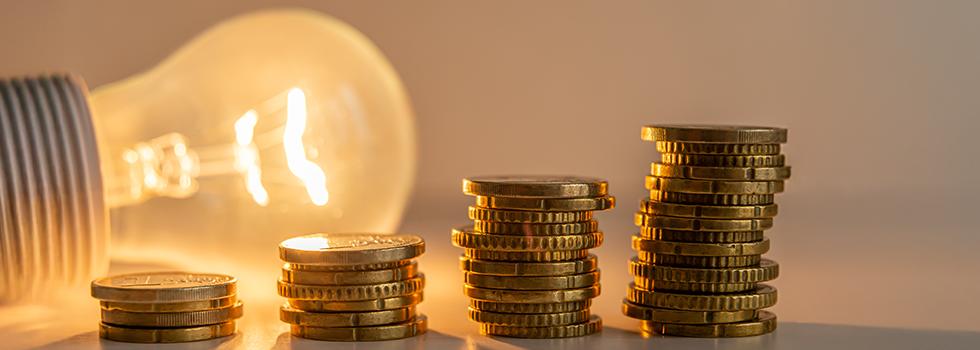How to Save on Energy Bills with Flexible Energy Plans

Rising energy costs are a concern for households and businesses alike. With fluctuating electricity prices and seasonal usage variations, finding ways to cut down on your energy expenses is more important than ever. One of the smartest strategies is to opt for flexible energy plans, which provide dynamic pricing and allow you to adapt to market conditions. This guide will walk you through how to save on energy bills using these plans effectively.
Understanding Flexible Energy Plans
A flexible energy plan is a type of tariff that adjusts rates based on demand, wholesale energy prices, and market conditions. Unlike fixed-rate plans that lock in a price for a contract period, flexible plans allow consumers to benefit from lower rates during off-peak hours and periods of lower demand.
Read - AGL vs Origin vs Energy Australia — Who Offers the Best Deal in Victoria?
Key Features of Flexible Energy Plans
- Time-of-Use Pricing: Different rates apply during peak and off-peak hours, allowing users to schedule energy-intensive activities when electricity is cheaper.
- Wholesale Market Linkage: Some plans offer rates tied to the wholesale energy market, where prices fluctuate in real-time.
- No Lock-in Contracts: Many flexible plans provide the freedom to switch providers or change plans without exit fees.
- Renewable Energy Options: Some providers offer incentives for using solar, wind, or other green energy sources.
How to Save on Energy Bills with Flexible Energy Plans
1. Shift Your Energy Usage to Off-Peak Hours
Most flexible plans charge lower rates during off-peak times, typically late at night or early morning. By running appliances like washing machines, dishwashers, and water heaters during these hours, you can significantly cut down on costs.
👉 Example: A household using 20% of its energy during peak hours (4 PM - 9 PM) could reduce costs by 10-20% by shifting usage to off-peak periods.
2. Take Advantage of Wholesale Pricing
Some energy providers allow customers to access wholesale electricity prices. While rates fluctuate, smart consumers can use energy monitoring apps to track when prices are lowest and schedule energy use accordingly.
👉 Example: If wholesale energy prices drop during midday due to high solar production, running energy-intensive devices like air conditioners at that time can lead to savings.
3. Use Smart Home Technology
Installing smart thermostats, energy-efficient appliances, and automated systems can optimize energy consumption. These devices can adjust usage based on real-time energy prices and household habits.
👉 Example: A smart thermostat can lower heating or cooling use during peak hours and resume operation when prices drop.
4. Consider Solar Power and Battery Storage
If you have a solar energy system, a flexible plan with solar feed-in tariffs can maximize savings. By storing excess energy in a battery system and using it during peak pricing hours, you can reduce reliance on the grid.
👉 Example: A solar panel system generating 5kWh per day with a high feed-in tariff can offset significant electricity costs.
5. Choose a Plan That Matches Your Lifestyle
Different flexible energy plans cater to different needs. If you work from home, a plan with low daytime rates may be ideal. If you travel often, a plan with minimal standing charges may help you save more.
👉 Example: A remote worker using electricity during standard work hours should look for a provider offering reduced daytime rates.
Read - Australia’s 11 Best Energy Suppliers — Find the Right Plan with Comparable.com.au
Comparing Flexible Energy Plans: What to Look For
Before switching to a flexible energy plan, compare these factors:
- Peak vs. Off-Peak Rates: Ensure the plan offers substantial discounts for off-peak usage.
- Wholesale Price Volatility: If rates fluctuate too much, you may need to adjust your habits frequently.
- Contract Flexibility: Look for no lock-in contracts to switch if better deals arise.
- Renewable Energy Incentives: Some plans offer discounts or credits for using clean energy.
Final Thoughts: Is a Flexible Energy Plan Right for You?
If you’re adaptable and can shift your energy use based on pricing trends, flexible energy plans can be a powerful way to save on energy bills. With smart home technology, solar integration, and time-of-use strategies, you can reduce electricity costs and contribute to a more sustainable energy future.
Before making a switch, compare plans from different providers, use energy comparison tools, and assess your consumption patterns. The key to saving is choosing a plan that works with your lifestyle, not against it!

- Art
- Causes
- Crafts
- Dance
- Drinks
- Film
- Fitness
- Food
- Games
- Gardening
- Health
- Home
- Literature
- Music
- Networking
- Other
- Party
- Religion
- Shopping
- Sports
- Theater
- Wellness


